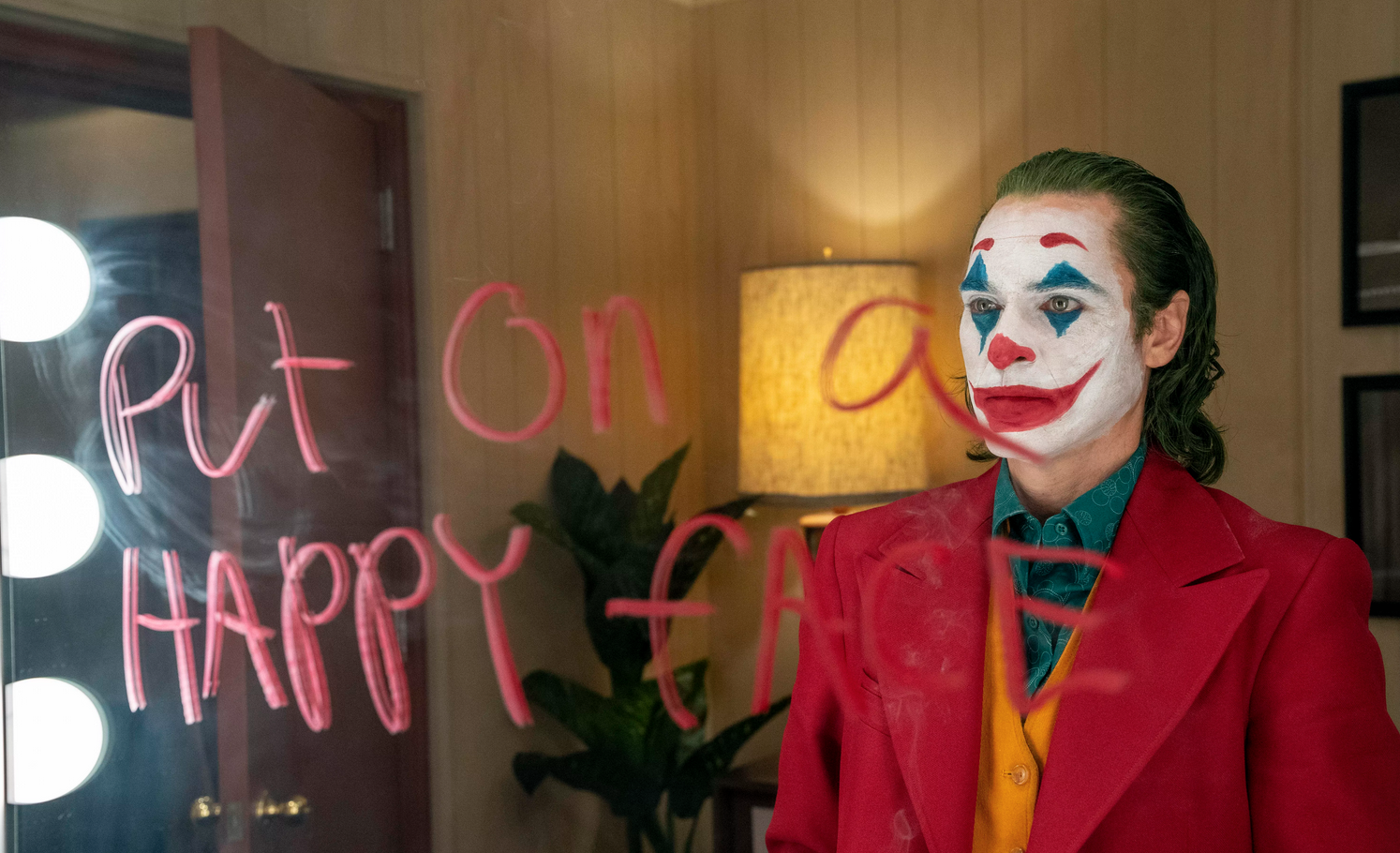I Saw Joker and STILL Think Killers are Bad | But Maybe We’re Kind of Awful, Too?
Joaquin Phoenix as Joker | image by Niko Tavernise, c/o Warner Bros. Entertainment
Throughout the two hours I spent glued to my theater chair watching Joker, an oft-used (but under-heeded) line played in my head: You never know what someone is going through. Be kind. Always.
I’d read the critical backlash to the movie before I saw actor Joaquin Phoenix’s take on Batman’s best-known foe. The Todd Phillips-directed movie shows us how downtrodden Gothamite Arthur Fleck essentially transforms into the maniacal killer we know as Joker—the issue being that it humanizes the lead more-so than any other on-screen version of the clown seen before. So here’s the big question: Should we empathize with people who commit heinous acts?
Joker trailer
Fleck comes off as a victim, a man who the world threw a potent cocktail of insufferable hurdles. He has a mental illness that causes him to laugh hysterically whether or not he finds anything funny, generally making him socially awkward. He's depressed. His doctor/psychologist/therapist is heartless and doesn’t care for him as much as she simply asks the correct questions and provides him with meds. He comes from a fatherless home. He has a clinically delusional mother. He’s poor and gets fired from his job as a party clown.
Oh, we’re not done yet.
We see Arthur beaten up twice—first by teenage boys in an alley, then by a trio of drunk 20-somethings on a subway car. He dreams of being a comedian, but completely bombs on stage the only time we see him perform. And when he does land a guest spot on his favorite late night show, it’s only because footage of his horrible club set basically went viral and the host wants to get Fleck on to razz him in person.
For a normal person dealing with just one of those plights, life is pretty hard. Imagine having to juggle all of the daggers. Joker is almost like the fictional version of a true crime documentary. By the time Fleck starts unloading bullets, we know the why.
I certainly didn’t leave the movie transformed, siding with murderers and criminals as many who attacked Joker have said it aims to do. Even as mass shootings become grossly frequent in America, I don’t think I’ll ever come to a place where a manifesto putting the onus of a terrible act on external forces could pardon the owner of the hands that pulled the trigger.
That said, I do think that society has the potential to positively or negatively influence its inhabitants. Gotham City, a morally bankrupt town divided by class with a robust supply of ball-busters and apathetic posers, produced Arthur Fleck. Many actions (and inactions) nudged him towards loneliness and feeling as though the world had turned on him. Hopeless.
Think of the lone person we see Arthur excuse from a gruesome execution during his spree; It was the dwarf, an old co-worker who treated him alright on the job. Joker wasn't looking for anything over-the-top in this film. At best he wants a job, maybe some female companionship, and a healthy parent. At worst, he just wants to be treated adequately and heard, like a human. “For my whole life,” Fleck says in the film, “I didn’t know if I even really existed.” That’s tough.
The Joker historically is portrayed as an agent of chaos, a villain uninspired by money and aroused only by the idea of causing madness. Heath Ledger’s Joker in 2008’s The Dark Knight torched the cash he stole. Later in the film, Bruce Wayne’s butler Alfred describes the smiley monster as an illogical man who just wants to “watch the world burn.”
However in Joker, his motives—though frightful—are quite simply understood, if only because it’s a movie with a thinly veiled message within its plot: Here’s what happened to a nice guy with some problems after he was abandoned and hurt by his government and community. As the official synopsis released by Warner Bros. Pictures reads, it is “not only a gritty character study, but also a broader cautionary tale.”
There’s fear out here in the real world that saying we empathize and sympathize with an evildoer means that we are also accepting their deeds as right, earned and deserved. It’s not that, man. Empathy softens and enlightens. Once you understand why Joker went mad, solutions can be forged to make sure those who share his issues can be helped before things really go left. You can believe that and still think criminals should go to jail and/or be placed in monitored programs that will assist in them becoming improved citizens.
Joker succeeded in that way for me. After the credits rolled, I walked home with a queasy feeling—the kind that blankets the mind, then seeps to the chest and stomach when your conscience tells you you’re wrong and must atone. “We all could be a bit more kind,” I thought. “Warmer. Gentler.”
Maybe this movie’s goal wasn’t to make you think about what it’d take for you too to become a serial killer or to “get” it. Maybe this Joker’s greatest and most enduring trick will be that he scares you into being a better person.





